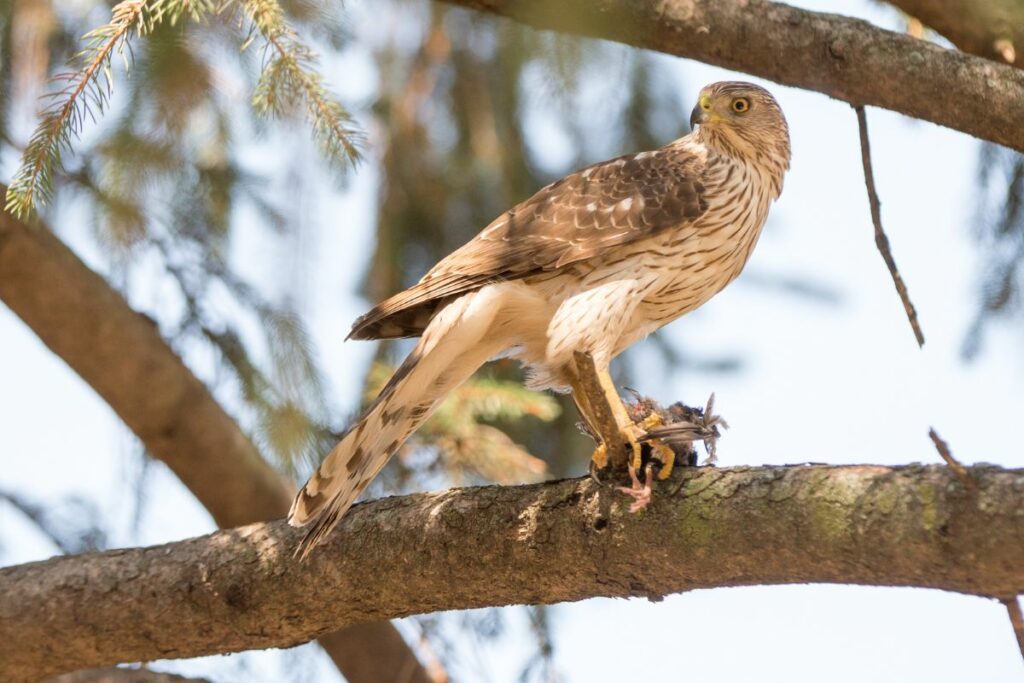Cooper’s Hawks represent a remarkable group of predatory birds whose presence in your yard can elicit mixed feelings. Their expert hunting prowess places them at the top of the backyard food chain, yet this same trait can lead to unintended consequences for the diverse avian community you might be trying to cultivate. These raptors are an integral part of nature’s balance, but for enthusiasts looking to maintain a lively garden, understanding and managing their impact is essential.
If you’re someone who takes pleasure in setting up bird feeders and enjoys the melody of songbirds, the arrival of a Cooper’s Hawk could disrupt this peaceful coexistence. Given their dietary preferences, these birds can swiftly alter the dynamics of your outdoor space. It’s crucial to gain insight into their feeding habits and the ways in which they hunt to effectively mitigate any potential challenges and ensure a harmonious environment for all your feathered visitors.
Highly Protective of Their Territory

Cooper’s hawks exhibit a strong inclination to defend their domain. As apex predators, they impact the local avian community, particularly reducing the numbers of songbirds in your area. Among the variety of wildlife they target are:
- Mourning doves
- American robins
- European starlings
- Blue Jays
- Rodents such as mice and squirrels
- Domesticated fowl
An outdoor environment with these raptors may mean that your smaller pets are at risk when outdoors. Moreover, their pursuit of prey can sometimes result in unintended consequences. They could mistake the reflection in your windows for open space, leading to:
- Collisions: Potential damage to property and risk of injury to nearby individuals
Understanding Cooper’s hawk behavior, especially during nesting periods, is crucial. They will fiercely guard their young from perceived dangers, including humans and pets, demonstrating aggressive displays when their nests are threatened.
Aware of their hunting prowess and protective nature can help you foresee potential encounters and take precautions, enhancing safety for both you and the local wildlife.
Deterrence Measures for Unwanted Avian Predators
Bird feeders attract a variety of birds to your garden, but they can also draw unwanted attention from Cooper’s hawks. These birds of prey often leave remains of their meals—feathers and bones—which are not a pleasant sight.
To discourage these predators:
Remove Bird Feeders: Eliminating the source of attraction can greatly reduce visits from Cooper’s hawks.
Create Hiding Spots: Install brush piles or plant dense shrubbery to provide safe spaces for smaller birds.
Prevent Window Collisions: Affix bird-friendly window treatments such as external screens or stickers that reflect ultraviolet light to avoid birds crashing into your windows.
Keep in mind that the presence of Cooper’s hawks indicates a thriving ecosystem in your backyard. Your actions should aim to manage the environment for all wildlife peacefully.

